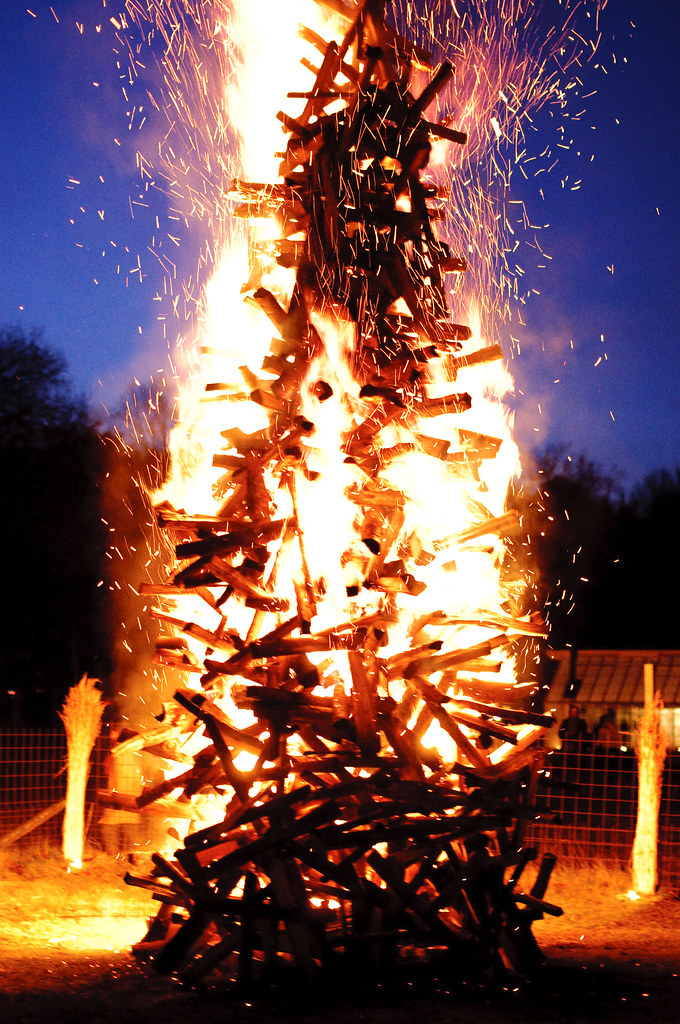 |
| A Yuletide bonfire of Yule logs - via Flickr CC |
Yule is the modern English representation of the Old English words ġéol or ġéohol which was the 12-day festival of "Yule" which was later called "Christmastide." The words ġéola or ġéoli referred to the month of "Yule." To further complicate things, ǽrra ġéola referred to the period before the Yule festival (December) and æftera ġéola referred to the period after Yule (January).
The noun Yuletide is first appears around 1475 in the explicitly pre-Christian context primarily in Old Norse. The the long-bearded Norse god Odin also had the names jólfaðr (Old Norse for "Yule father") and jólnir ("the Yule one").
Today Yule is also used to a lesser extent in English-speaking as a synonym for Christmas. Present day Christmas customs such as the Yule log, Yule goat, Yule boar, Yule singing, and others stem from pagan Yule.
- More about the Yule celebrations
- Yule: Rituals, Recipes & Lore for the Winter Solstice
- Yule: A Celebration of Light and Warmth

No comments:
Post a Comment
All comments need to be approved by the admins. Spam will be deleted.